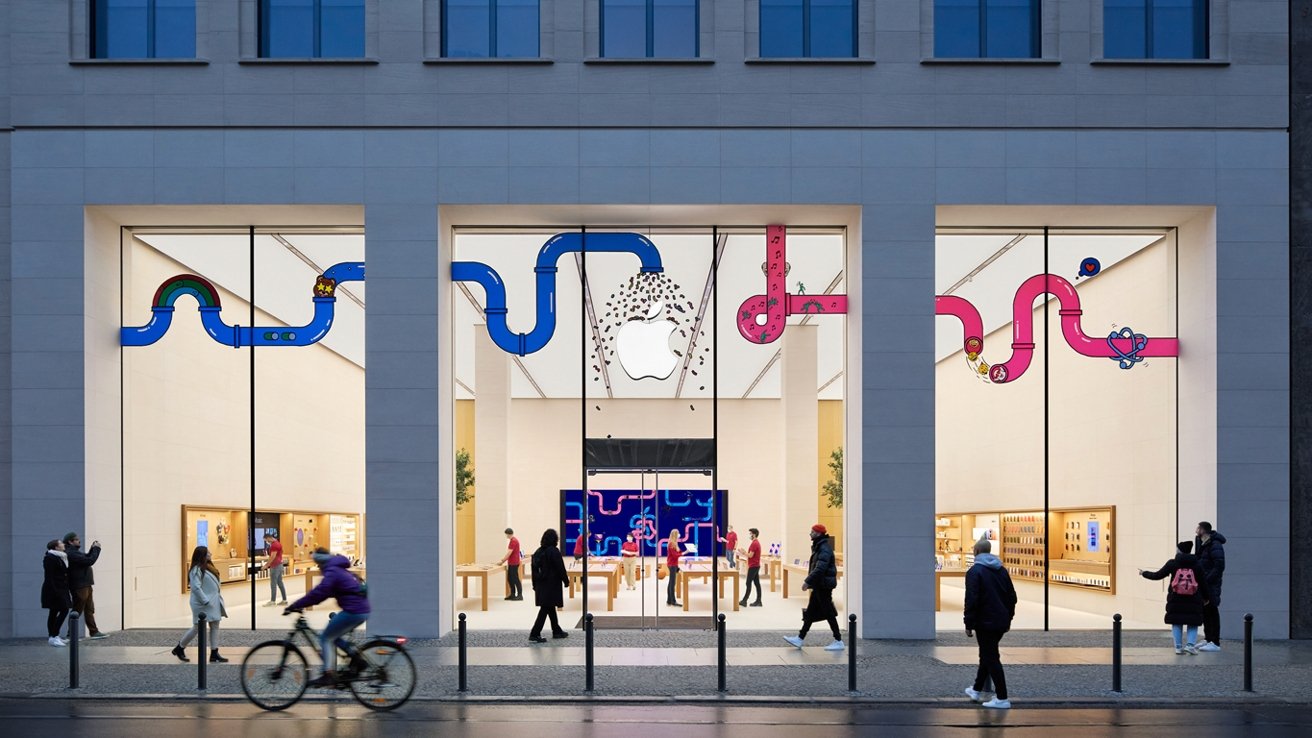Apple loses antitrust appeal in Germany, now subject to steep fines and regulations
Apple has lost an appeal in Germany on how much it dominates the smartphone market, and is now staring down antitrust penalties in the country on top of everything else it faces in the European Union.

Apple Rosenthaler Strasse - Image Credit: Apple
As such, Apple is now subject to penalties in accordance with anti-competition law in Germany. On Tuesday, judges from the Federal Court of Justice issued a ruling after a one-month deliberation, declaring that Apple should be applied additional controls to encourage competition in the German market.
Presiding judge Wolfgang Kirchhoff said that an assessment has shown that Apple has too much control across multiple markets, and should be subjected to additional controls, reports Reuters.
Apple's legal team asked for the court to discuss the matter with the European Court of Justice in Luxembourg ahead of making a decision, on the belief that EU and German law don't necessarily line up. Judge Kirchhoff said the judges failed to see any grounds for such contact to be made.
Federal judges ruled that Apple's 2023 designation as a "company of paramount cross-market significance for competition" stands.
Controls and fines are likely as a result of the ruling. Exactly how harsh the penalties will be remains to be seen.
Competition checks
The lawsuit was instigated by the Bundeskartellamt in April 2023, with the regulator believing that Apple was subject to a 2021 amendment to the German Competition Act. Section 19a of the act, which came into force in January 2019, adds more controls and checks for companies that are seen as breaking German antitrust law.
Following the addendum, the regulator was quick to start an investigation using its new powers into the App Store and Apple's activities.
With control of iOS and the App Store, Apple therefore "holds a key position for competition," according to German law.
Apple's lawsuit aimed to defeat the regulator's original decision, and therefore allow Apple to operate without the extra checks to prohibit anti-competitive practices. The designation will stand until April 2028.
The legal fight is also separate from the regulator's other Apple-related activities. In June 2022, it launched an antitrust investigation into Apple over App Tracking Transparency, specifically complaints that ATT rules that applied to third-party app producers didn't apply to Apple itself.
Germany's activity also follows after years of attempts by the EU and other governments to curtail the power of tech giants in the marketplace.
The most recent attempt are the Digital Markets Act and Digital Services Act, a set of rules to try and force gatekeepers to act in a competition-promoting way.
This included forcing Apple into allowing third-party App Store alternatives onto the iPhone in the EU, and eliminating anti-steering rules. Changes that Apple dragged its heels over, but eventually relented in some cases.
Read on AppleInsider

Comments
It isn't a 'money grab' nor does it have anything to do with the Android market or anything else you bring up.
The Germans aren't making the laws up as they go. There was an investigation and a ruling. Apple presented its case. That is how it works.
Maybe Apple can appeal. I don't know.
And, of course, the bitter irony in many of these cases is that these "Western Democracies", supposed bastions of freedom, are going after Apple for protecting freedom and privacy.
If Apple can’t follow the law, they will be fined and that’s the way it should be.
Maybe they’ll even have to do what’s best for the customer instead what’s best for them, imagine. The horrors!
Companies like Ford actually produce in Germany (cars designed for the EU market)
Apple is a minority manufacturer of phones, tablets, and personal computers. As such, they do not now, nor have they ever had anything vaguely resembling sufficient market control for any other their actions to be meaningfully anticompetitive. This ruling reflects a warped grasp of Apple's actual market share.
By Apple's own numbers it qualifies as a Gatekeeper for phones under EU law.
Car anologies don't work well here due the digital CPS nature of the issue.
Also, many jurisdictions around the world are coming to similar conclusions about Apple's anti competitive practices. The US might end up being one of them.
EU law makes a mockery of law.
You may argue about how those numbers were set but not that Apple falls into the group of gatekeepers.
And it isn’t just Apple having these troubles. These Eurocrats never rest, because they believe they are doing good.
Thanks for the rational law analysis, anon! I'll be sure to come back here whenever I need more in-depth legal and historical analysis!